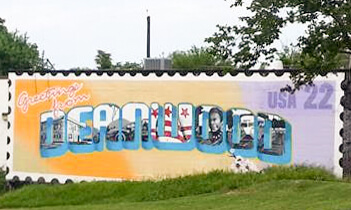
From Private Practice to Public Interest: Deborah Levine
By Miranda Hines
Deborah Levine has achieved the legal trifecta: She’s gone from private practice to the federal government to a public-interest organization. Now she’s bringing her skills east of the river.
After graduating from GW Law School in 1990, Deborah first became a litigator at Wilmer Cutler & Pickering—which has since evolved into WilmerHale—and practiced there for five years. Deborah began her public-service career in 1995, joining the Division of Enforcement of the Securities and Exchange Commission. After taking a year off to raise her twins, Deborah transferred to the SEC General Counsel’s Office in 2001 and worked part-time on legal policy. In this capacity, she reviewed the Division of Enforcement’s requests for authority to bring legal action against individuals and organizations.
Deborah and her family lived in London from 2010 to 2013 so that her husband, also a lawyer, could work closer to his European clients. After returning to the United Staes, she reevaluated her career. Deborah realized that although she genuinely enjoyed law-firm culture, she didn’t become a lawyer to work in private practice. Deborah didn’t know precisely how she wanted to serve the public, but she knew that she wanted to change the way that she used her legal training.
Deborah started by participating in several public-interest trainings run by the D.C. Bar. Through those trainings, she got involved with the Family Court Self-Help Center, which provides legal information and resources to families in need. Although the Self-Help Center doesn’t offer legal advice, it does provide general information in cases including divorce, custody, child support, and paternity determination.
Deborah’s work in the Self-Help Center eventually connected her with Heather Hodges and Neighborhood Legal Services Program—where she works now. On Mondays and Wednesdays, Deborah meets with clients at NLSP’s Southeast office, advising Ward 7 and 8 residents about family law, housing, and disability benefits. She also staffs the Small Claims Resource Center, a joint initiative of NLSP and the D.C. Bar.
Transitioning from private practice to a public-interest organization was not difficult, Deborah says, because both settings require focus and long-term thinking. But pro bono cases involve a different set of clients with pressing problems—and so her work has more immediate effects.
Deborah adds that it can be incredibly important “just to explain to people how the process works, what [her clients] can expect.” Legal help centers, she adds, allow one lawyer to assist many people in relatively little time—something that’s not possible when a lawyer is tied to a single case.
As a public-interest lawyer, Deborah hears a lot of compelling stories and finds it challenging to accept that she can’t help everyone. Nevertheless, the “satisfaction of providing a lot of people with the tools to navigate a legal system that is both unfamiliar and stacked against them makes the work worthwhile.”
Miranda Hines is an undergraduate at Washington University was our Summer 2016 intern.






